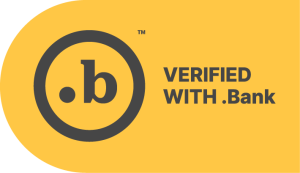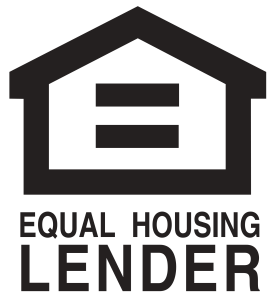As you wrap up this year and look toward the next, you can begin to dream about what the new year will hold. What do you want to accomplish next year? What are some of your biggest goals?
It feels like a chance to start fresh, which is why so many people create New Year’s resolutions. These pledges to do better in the new year are nothing new. Some scholars have traced these annual promises to ancient Babylonians, Romans and medieval knights. One New Year’s resolutions poll found that approximately one-third of Americans looked to improve heading into 2023. While improving health and fitness were the top goals for adults in the U.S., improving financial standing was another popular answer.
It can be daunting to pick a new goal and stick with it. We’ve all heard about the large percentage of people who drop their resolutions by February. However, financial success looks different for everyone, and we want to help you set an attainable goal to succeed. As your local bank, we want to help you have a better relationship with your money.
Learn why creating a New Year’s Resolution can help you move toward your financial goal, explore financial resolutions for the new year and grab a few tips on how to keep those resolutions.
Why New Year’s Resolutions Can Help Jumpstart Good Financial Habits
If you’ve tried a New Year’s resolution in the past and felt let down when it didn’t work, we understand. Taking on any type of change is difficult, but, according to professional counselors, we are apt to attempt large, sweeping changes in our New Year’s resolutions. It’s great to dream big, but setting lofty goals without clear, attainable steps can result in frustration and failure to reach your goal.
Setting a financial resolution for the new year may be one of the best times to start working toward a new goal. Studies have shown that significant points in the calendar year, like New Year’s Day or your birthday, may give you an extra boost of motivation. This drive is due to a psychological separation your brain makes between your past, present and future self at these moments, known as a “temporal landmark”.
Whether you start building toward your financial goals on January 1 or a few days into the new year, taking advantage of this temporal landmark is an excellent idea. However, if you are still looking for the best money resolution for yourself, check out our list below!
The Four Best Financial New Year’s Resolutions
#1. Create a Monthly Budget
We talk about budgeting a lot here on the Community Point Bank blog because it’s critical to building a foundation for financial success. You need to know where your money is going each month to allocate it better to reach your financial goals. You can use a budgeting worksheet from an online template, use a budgeting app, or create one the old-fashioned way with pen and paper.
To get started, you can use the 50/30/20 savings rule, which means you use 50% of income on necessities, 30% on other expenses and the final 20% for savings and investments. Depending on your situation, you can play around with the exact percentages, but it’s a great kickoff point to build upon.
#2. Build Your Emergency Savings
One item that should be a part of your budget is an emergency savings account. In a survey on financial resolutions for the new year, only 8% of respondents were looking to build their emergency savings fund. However, other surveys have found that more than half of adults in the U.S. couldn’t cover an emergency expense over $1,000 with their savings.
You don’t have to build up to an emergency savings account to cover three months of expenses overnight. Set small goals and slowly work toward your desired amount. When a financial emergency strikes, refocus efforts to replenish this fund first.
#3. Start a Dedicated Savings Account for Significant Purchases
If you’re looking to purchase a vehicle or home in the new year, starting a dedicated savings account for these large expenditures is a great idea. Like your emergency savings, a separate savings account will help you directly allocate funds away from your checking account, removing the temptation to spend the cash on smaller items. You can set up a recurring auto-transfer to coincide with your payday to simplify the savings process!
#4. Pay Off Debts
Finally, paying off debts is a regular resolution for many. If you want to pay off debts in the new year, the “debt snowball” method can be a motivating approach. In this method, you list all of your debts from smallest to largest. Then, you make the maximum payment you can on the smallest debt while maintaining minimums on the rest. You continue to repeat this process until you complete payments for every debt.
While the debt snowball is a simple way to eliminate debt, we understand that everyone’s situation is different. If your financial state is complex, you may need to discuss it with a credit counselor or financial professional.
Now that you’ve had a moment to review some of the best financial resolutions for New Year’s, check out some strategies to help you implement and maintain your goals.
How Can I Keep My Financial Resolutions for the New Year?
Keeping a New Year’s resolution is easier said than done. If you’ve failed to keep a resolution in the past, it’s easy to become dismissive of the idea. Behavioral scientists have studied effective ways to stick to your New Year’s resolutions better. Here are a few of the critical factors they found in creating a successful resolution plan:
- Find someone who has done it before. When you spend time around other individuals who have accomplished the financial goal you’ve set for yourself, you are more likely to succeed. Finding a financial friend can give you inspiration and accountability when fulfilling your resolution for the new year. Remember, this individual is not a financial professional.
- Create cues for your resolution. A specific cue-based plan can keep you on track by constantly reminding you of your goal. An example would be checking your account online each Monday during your lunch break to see how much you spent during the weekend. This way, you become more aware of your spending and saving habits.
- Allow yourself grace. We want you to succeed at your goal, but slip-ups will happen. Whether you overspend your budget or can’t save toward your big purchase due to an unexpected cost, returning to your resolution after a mistake can make reaching your goal more rewarding.
Find a Bank to Meet Your Financial Resolutions for the New Year
The team at Community Point Bank wants to help you keep your financial resolutions and find success in the new year! Check out our variety of services to help you better manage your money, and visit our contact page if you have any questions.




